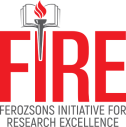Our Team

Mr. Osman Khalid Waheed
Founder
Osman Khalid Waheed is the CEO of Ferozsons Laboratories Limited. He joined the company in 1993 after obtaining his undergraduate degree from Harvard University, USA. He has worked in logistics, sales and marketing before assuming the role of company president in 1999. During this period, the company expanded its portfolio of medical solutions for critical diseases by forging alliances with a number of leading international partners including the Boston Scientific Inc., USA the world’s leading manufacturer of medical devices, a joint venture with the Bago Group of Argentina to establish BF Biosciences Limited, Pakistan’s first biotech pharmaceutical manufacturing company and Gilead Sciences, Inc. USA for their range of Hepatitis C and anti-viral therapies to name a few. Mr. Waheed is currently serving on the boards of a number of companies including IGI Insurance, Lahore University of Management Sciences (LUMS), Murree Brewery, Nestle Pakistan Limited, and has previously served on the boards of Trade Development Authority of Pakistan (TDAP), Pakistan Industrial Development Corporation (PIDC), and as President of the Rawalpindi Chamber of Commerce and Industries.
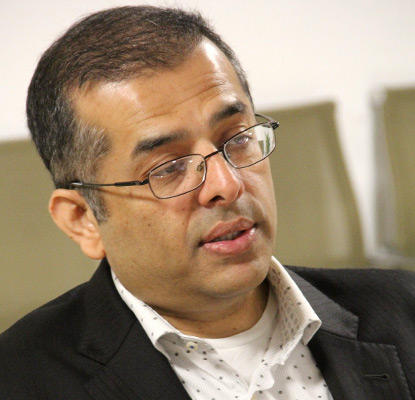
Dr. Adeel Ajwad
Co-Founder
Dr. Adeel Ajwad Butt is a Pakistani–American Infectious Diseases physician, Professor of Medicine and Population Health Sciences at the Weill-Cornell Medical College. He is also the founder President and CEO of Innovations in Healthcare Advocacy, Research and Training (I-HART). Adeel Butt’s research focus has been hepatitis C virus(HCV) infection and HIV coinfection. He was also involved in National Institutes of Health sponsored AIDS Clinical Trials Network, where he was a member of the Viral Hepatitis Transformative Science Group and led several key clinical trials. More recently his research focus has been on Emerging Infectious Diseases and antimicrobial resistance. in 2018 he led the care and investigation of MERS-CoV outbreaks in the UAE and served as a WHO consultant for this infection. He also led an initiative studying the evolving antimicrobial resistance in the UAE and its impact upon clinical outcomes. More recently, Adeel Butt has been actively involved in the COVID-19 pandemic response and COVID-19 research in Qatar and in the United States and has published more than 70 key papers on this topic.
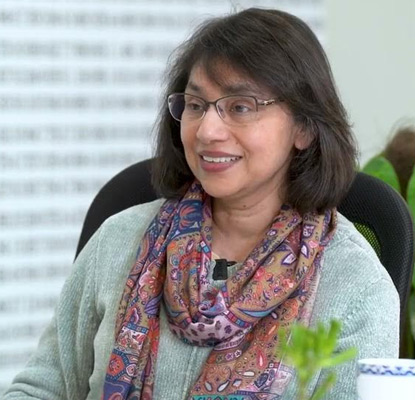
Dr. Shaper Mirza
Director
Dr. Shaper Mirza is an infectious disease scientist. Her primary focus of research is host -pathogen interaction where she deploy both immunological and molecular techniques to understand pathogenesis in healthy and immune compromised host such as individuals with type 2-diabetes. Her current research includes projects on antimicrobial resistance, genomic basis of antimicrobial resistance, immune response to S. pneumoniae , Group B Streptococci colonization in women of child bearing age and its impact on neonatal sepsis and finally understanding the impact on pneumococcal vaccine on changing population biology of Streptococcus pneumoniae. Dr Mirzas work in particular her work with antimicrobial resistance and Smart Containment and Active Learning (SCALE) also became part of policy document, among which, the situation analysis for antimicrobial resistance became part of the National Action Plan for Antimicrobial Resistance. Dr Mirza’s laboratory is also developing evidence for the recommendation for adult immunization against S. pneumoniae in particular immunization of those with cardiovascular disease and type 2-diabetes. Dr Mirza engages with a large network of sectoral and academic partners for deployment of evidence generated in the laboratory to improvement or refinements in policy and health care delivery.
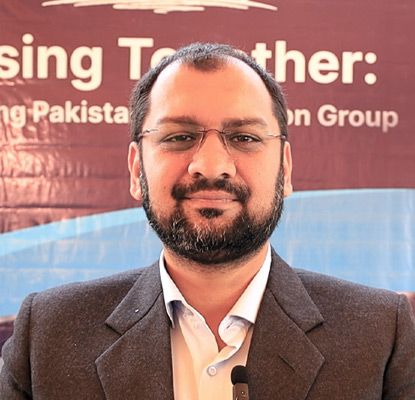
Dr. Safee Ullah Chaudhary
Member
Safee Ullah Chaudhary received his B.S. in computer systems engineering from the Ghulam Ishaq Khan Institute of Engineering Sciences and Technology, Topi, Pakistan in 2002. He spent the next four years at Ultimus Inc (HQ NC) serving in the software development group. He was the team leader for the design and development of Ultimus XML Formula Engine. He then proceeded to South Korea for graduate studies and obtained an M.S. and Ph.D. in 2008 and 2013, respectively. His doctoral research at the Department of Bio. & Brain Engineering, Korea Advanced Institute of Science and Technology (KAIST), was focused on computational modeling of multiscale cancer systems biology. He took an agent-based (multi-agent) approach to model tumorigenesis and uncovered the role of cell death in the Warburg Effect. This work also led to the development of the Electronic Cancer System (ELECANS), which is a next-generation modeling platform for applications in cancer systems biology. In 2014, he joined the Department of Biology at LUMS where he established the Biomedical Informatics & Engineering Research Laboratory (BIRL) which is now involved in the development of cutting edge techniques and software for applications in computational proteomics, systems biology and mobile health.
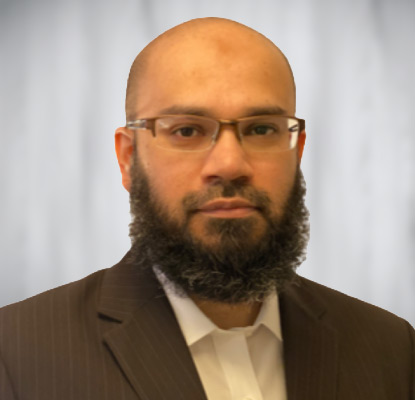
Dr. Muhammad Shoaib
Member
Dr. Shoaib received his BDS from de’Montmorency College of Dentistry, Lahore in 2003. After completing the house job, he moved towards fundamental research and earned his M.Sc. in Molecular Oncology in 2006 and Ph.D. in Molecular Biology in 2011, both from the Gustave Roussy Cancer-Campus, University of Paris-Sud, France. Dr. Shoaib joined the Department of Biology at Syed Babar Ali School of Science and Engineering in April 2021 as an Associate Professor and established Epigenome and Genome Integrity Lab (EaGIL). Dr. Shoaib specializes in chromatin biology and epigenetics and their interplay with genome maintenance pathways. Dr. Shoaib aims to characterize chromatin-centered molecular pathways that govern key cellular processes including DNA replication, transcription, and DNA damage response. His work employs a combination of conventional molecular & cellular biology techniques, high-throughput genomics & proteomics technologies such as ChIPseq, RNAseq, ATAC-seq, and Mass Spec, etc., and bioinformatics analysis to decode the complex underpinnings of the aforementioned cellular processes. He is keen on integrating the high throughput biological data acquired from these methods to build next-generation multiscale in silico networks of epigenetic and DNA damage response factors. Using Systems Biology approaches, Dr. Shoaib’s lab annotates biomolecular networks with patient-specific mutations and gene expression data and develops next-generation precision cancer therapies.
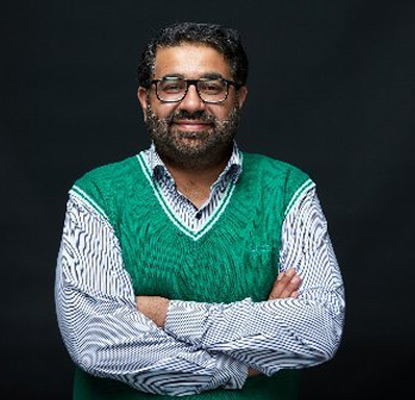
Dr. Imran Cheema
Member
M. Imran Cheema received the Ph.D. and MS degrees in Electrical Engineering from McGill University Canada in 2014 and the University of Colorado at Boulder USA in 2007, respectively. He received his BS in Electrical Engineering from UET Lahore in 2002. He is currently an assistant professor in the Electrical Engineering department at Lahore University of Management Sciences (LUMS), Pakistan. His prior appointments include a photonics engineer at Oerlikon Optics Inc., USA, and a postdoctoral researcher at McGill University, Canada. His research interests include designing and developing optical sensors for point-of-care, agriculture, and food security applications.
